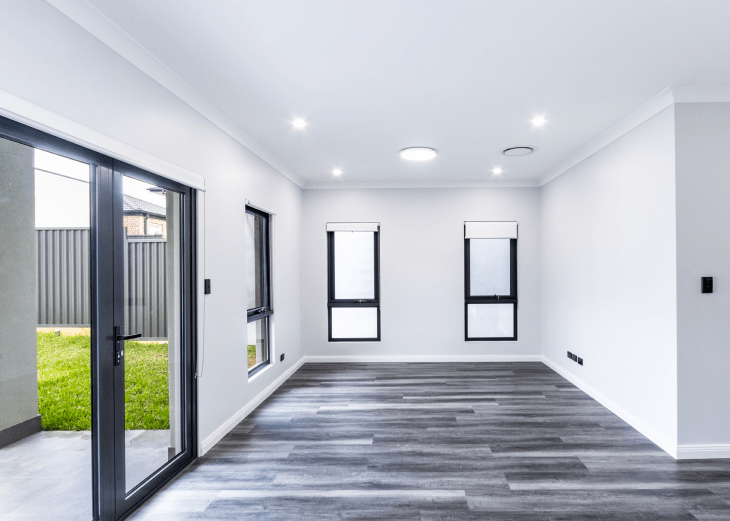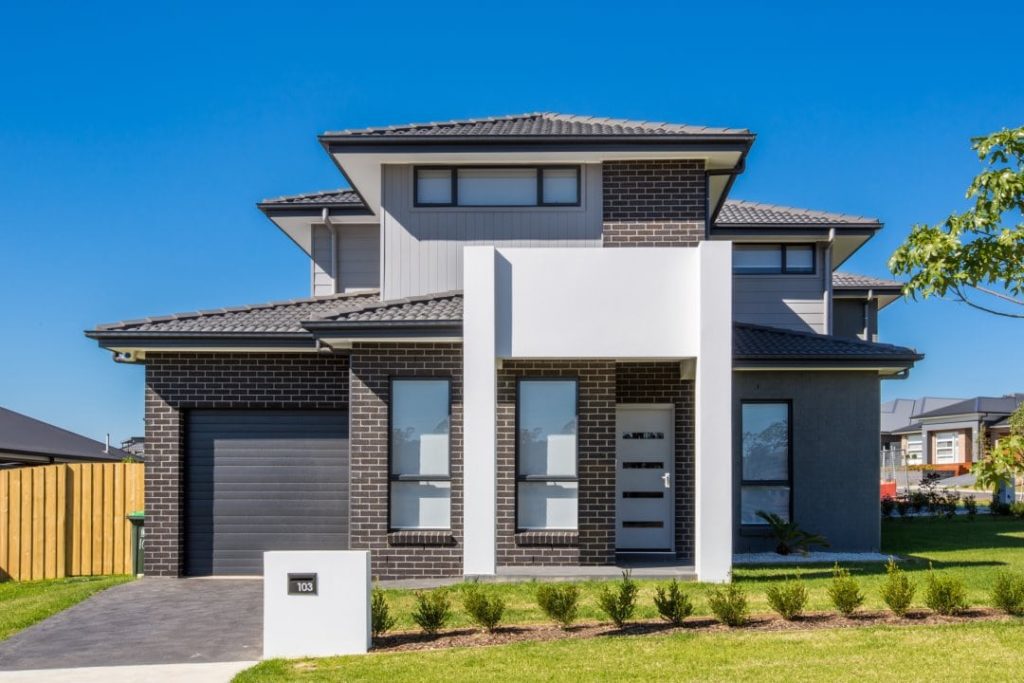
The Financial Benefits of Buying House and Land
Beyond the touch and smell of new paint, there are so many financial benefits to buying a houses and land today that it’s no wonder why most people are doing it. You don’t even have to be a first-time homebuyer to enjoy the security and stability of buying a house and land.
With the high costs of rent, mortgage payments, taxes, and insurance payments that come with renting an apartment or house these days, more people are looking into how they can buy houses and land to end these monthly expenditures once and for all.
Financial Factor
When you consider all your costs, buying a new home with a mortgage may be less expensive than renting in some cases.
For example, if you find yourself overpaying for rent each month on an apartment to avoid repairs, saving up enough money to buy your place might make sense.
But it’s important to remember that you’re also building equity when you buy, plus interest rates are historically low right now, so the chances are good that mortgage payments will be lower than rent costs.
The trick is striking a balance between affordability and thinking long-term when choosing whether to rent or buy in any given market.
Tax Reasons
If you’re not a property investor already, homeownership will likely help your tax bill. The tax treatment for investors is far more favourable than that for homeowners. If you are an owner-occupier, you can claim any capital gains (if you sell) as an itemized deduction against ordinary income meaning you only pay tax on a portion of your payment.
This leads to significant savings relative to what a property investor would get. For example, if $300,000 worth of assets were sold at a profit after five years, that could equate to $40,000 in taxable capital gains based on Australia’s marginal rate of 46.5% without any offsetting costs or losses.
However, if these were held by an individual who was able to write off $20,000 of their mortgage interest over that period ($1,500 per year), they would be left with a taxable capital gain of just $20,000.
Low Maintenance
Low maintenance costs mean you won’t be throwing away your hard-earned cash to keep up with unnecessary expenditures.
A house and land package are a one-time investment, meaning no monthly payments or taxes to worry about; for many people, that makes property ownership a far more financially sound investment than a new car or other high-maintenance items.
As long as you take care of it, your house will last for years and years to come. If you choose to sell down the road, plenty of buyers are looking for houses in good condition. You can also lease out your property to make some extra money while still enjoying its benefits.
It’s worth noting that buying a home isn’t always cheaper than renting, but it can be much more affordable (like when you have a low income). The only way to know what works best for your financial situation is to crunch some numbers.
Get Lower Utility Bills
Homeownership comes with many upsides, including lower utility bills. For example, if you have a mortgage, you’ll have an interest deduction on your federal income taxes.
Also, since homeownership means more time spent in one place, there’s less chance of losing track of small monthly bills like electricity or cable fees that add up to big money over time.
Finally, homeowners can often save money by being creative: a solar-powered water heater might not be as expensive as you think; home repairs done yourself might save hundreds in labor costs, and managing utility costs can pay off if you’re able to learn how to make your house more energy-efficient.
In short, whether you own your home outright or have a mortgage payment, buying land is usually worth it significantly if it will help reduce those pesky utility bills.
Homeownership Boosts Your Credit Score
A credit score is a significant number that helps lenders determine whether you’re likely to repay debt. If you rent, your credit score won’t help you get a mortgage or other type of loan.
However, if you buy a home, your credit rating will influence how much (or how little) interest rate you pay on your mortgage.
The higher your score, the lower your rate will be and that could save you thousands over time. In addition to helping with financing costs, a good credit score may lead to better insurance rates and access to lower-cost utilities and other services through providers such as cell phone companies.
Property Value Appreciation
Homeownership gives you a direct stake in rising property values. If you’re looking to build wealth, buying a house and land is an excellent way to do it.
Property values usually appreciate faster than stocks or bonds over time, meaning that your investment will compound more quickly.
The longer you stay in your home, the more it will be worth. People who own homes see their net worth rise by two percent every year, while renters don’t see any appreciable gains over time.
Homeowners also often have lower costs on things like taxes (typically part of homeownership) than renters who pay for things like maintenance for their units.
Additional Income
You can generate additional income by renting out a room, providing childcare, starting a landscaping business, or offering extra cooking services to your neighbors. These side hustles are great ways to earn extra cash while working part-time or at other jobs.
First home buyers grant
First-home buyers may be eligible for a full or partial (up to $7000) grant from state or territory governments. This can substantially reduce your deposit requirements, allowing you to purchase a more expensive property than you would have otherwise.
The grants are sometimes available and local governments or developers offer incentives. First home buyer programs were first introduced in Sydney in September 2010 as part of a strategy spearheaded by NSW Planning Minister Brad Hazzard to address affordability issues.
Later, other states followed suit, with Victorian first home buyers granted $21,750 towards their new homes on July 1, 2011. All other states have implemented similar schemes, although they vary widely in maximum grant amounts, applicable prices, and tenure restrictions.
Faster deposit
When you purchase a property with a house and land, your deposit will be significantly lower than if you bought one without. For example, a $500,000 house-and-land package will give you almost $30,000 worth of extra cash for moving expenses.
Even factoring in a 10% deposit on top of those costs means you’ll still have $20,000 leftover. In comparison, buying a separate house and land would require an extra $50k to make up for not having land as part of your deposit, after which you’d have $5k left to move with.
Cut costly interest rates
Interest rates on mortgage loans tend to be significantly higher than those on any other type of loan, including home equity lines of credit. If you’re going to be borrowing lots of money, you might as well get a lower interest rate.
That can save you thousands in interest over time, so many buyers prefer to purchase homes outright instead of taking out mortgages. In some cases, it’s also possible to negotiate an interest-free payment plan for land if you make all your payments upfront.
Doing so can help reduce your out-of-pocket costs considerably and lower monthly expenses later on.
Save thousands on the agent commission
Many first-time buyers hear from friends or family that they’ll have to shell out 6% or more in agent fees on top of their mortgage repayments for a typical home purchase.
But getting a whole property instead of a strata unit cuts out those costs completely, as you don’t need to use an agent. As all homeowners know, it feels great to tick off an entire house as your own.
Lower risk of rent increases
One way to make sure you’re not robbed blind by rent hikes is to buy property. Your monthly payments won’t be subject to any sudden increases with homeownership.
Not only will you pay less for a house than you would for a rented apartment or condo, but home values also rise over time, providing significant equity value that can translate into savings down the road when you decide to sell or move.
The housing market is hot right now, too meaning that it’s likely to keep going up! All in all, buying a house is one of the best ways to ensure you don’t get ripped off by landlords.
Avoid capital gains tax when selling later
When you buy a house, you purchase land and a house. The land value tends to increase over time in most areas but is also difficult to change after purchase.
If you are buying a house for $200,000 with a 20% deposit ($40,000) and then sell that same house for $400,000 after two years, then you will only pay capital gains tax on $60,000 (the difference between what you paid initially for land and selling price).
This means you will not have to pay any capital gains tax if your property increases by more than $60,000 during your ownership period.
Avoid strata fees
Strata fees cover maintenance for an entire building common space, lifts, drains, power, etc. Strata fees are usually divided equally among residents every month.
If you live in your own home and want to move out while still retaining ownership, you won’t have to pay those strata fees anymore. The same goes for using your property as an investment no more paying strata fee. This has made buying a house and land one of Australia’s best-kept secrets.
Own your future growth potential
The number one reason to invest in houses and land is that they’re a fantastic way to earn a return on your money. When you invest in a house and land, there are two ways you can make money: capital growth (also known as capital gains) or rent (money you earn from renting out your property).
In some instances, both scenarios will likely play out for you. As time goes by, prices will increase especially if you choose a suitable location or provide quality service within your local community.
You might also benefit from tenants who pay up regularly because houses aren’t a flash-in-the-pan form of investment.
Bottom Line
In conclusion, there are many benefits to buying a house and land rather than renting. If you want to enjoy financial freedom, purchasing a home for your family is one step in that direction. You will get more for your money and build equity over time if you own property.
You make a solid foundation for your financial future when you buy instead of rent. Owning your own home is safer than renting; it’s not yours if something goes wrong with your apartment or rental house.
You don’t have any control over it once you hand over that cash every month. Homeownership gives you the security that renters never experience, making investing in property an even better decision than ever before.
Recent Posts
The Pros and Cons of Buying a House and Land Package
One of the most question we have got is whether we should buy an established home or...
Three Critical Factors To Finding The Suitable Land For Your Dream Home
Finding the proper bit of land for your dream home can be difficult if you’ve never done…
How To Pick The Right Project Home Builder
In this turbulent times, the decision to pick a decision is never more important when it comes...


